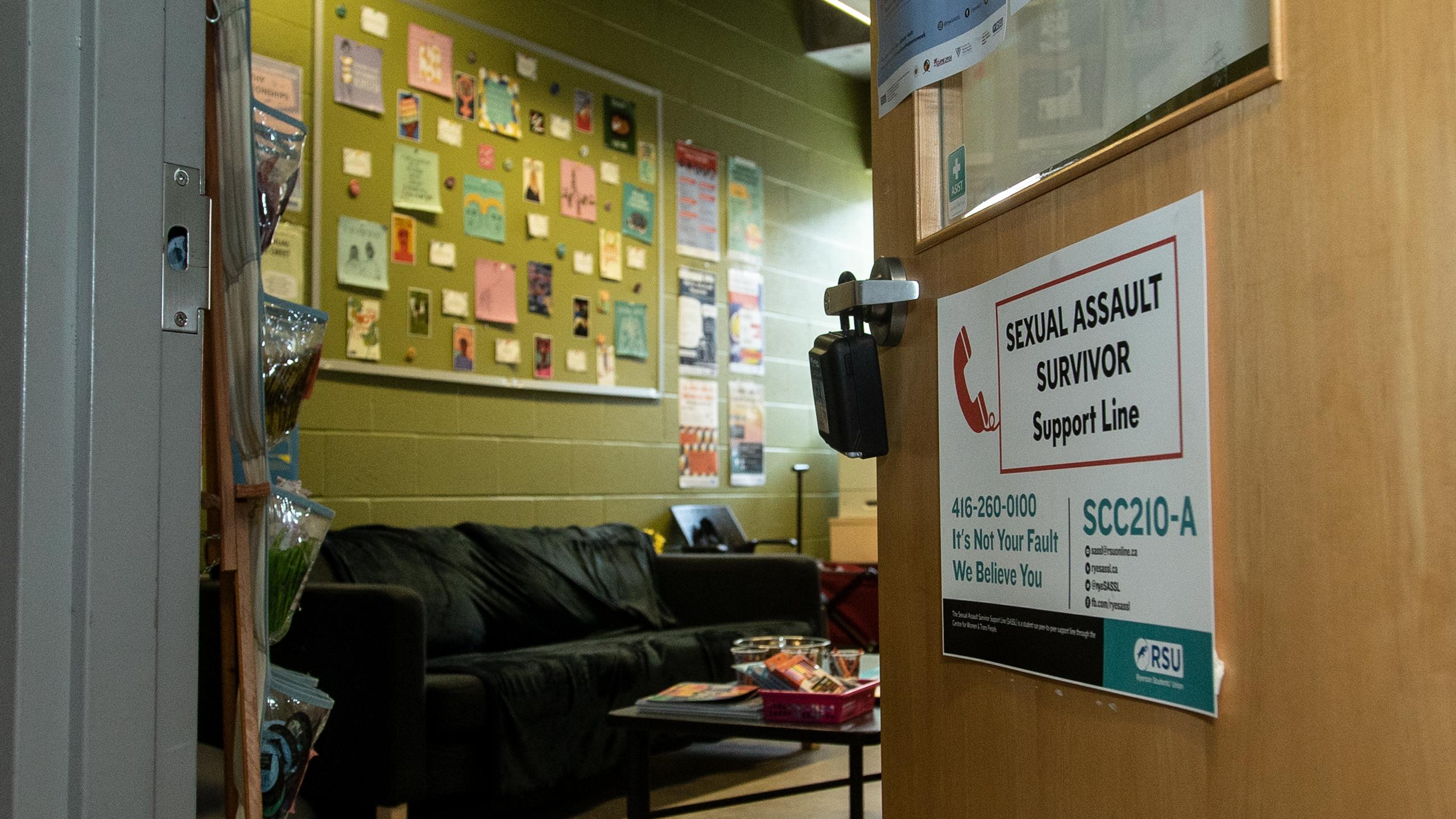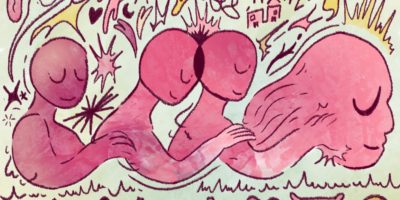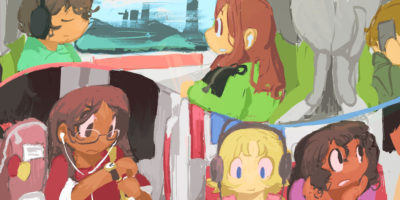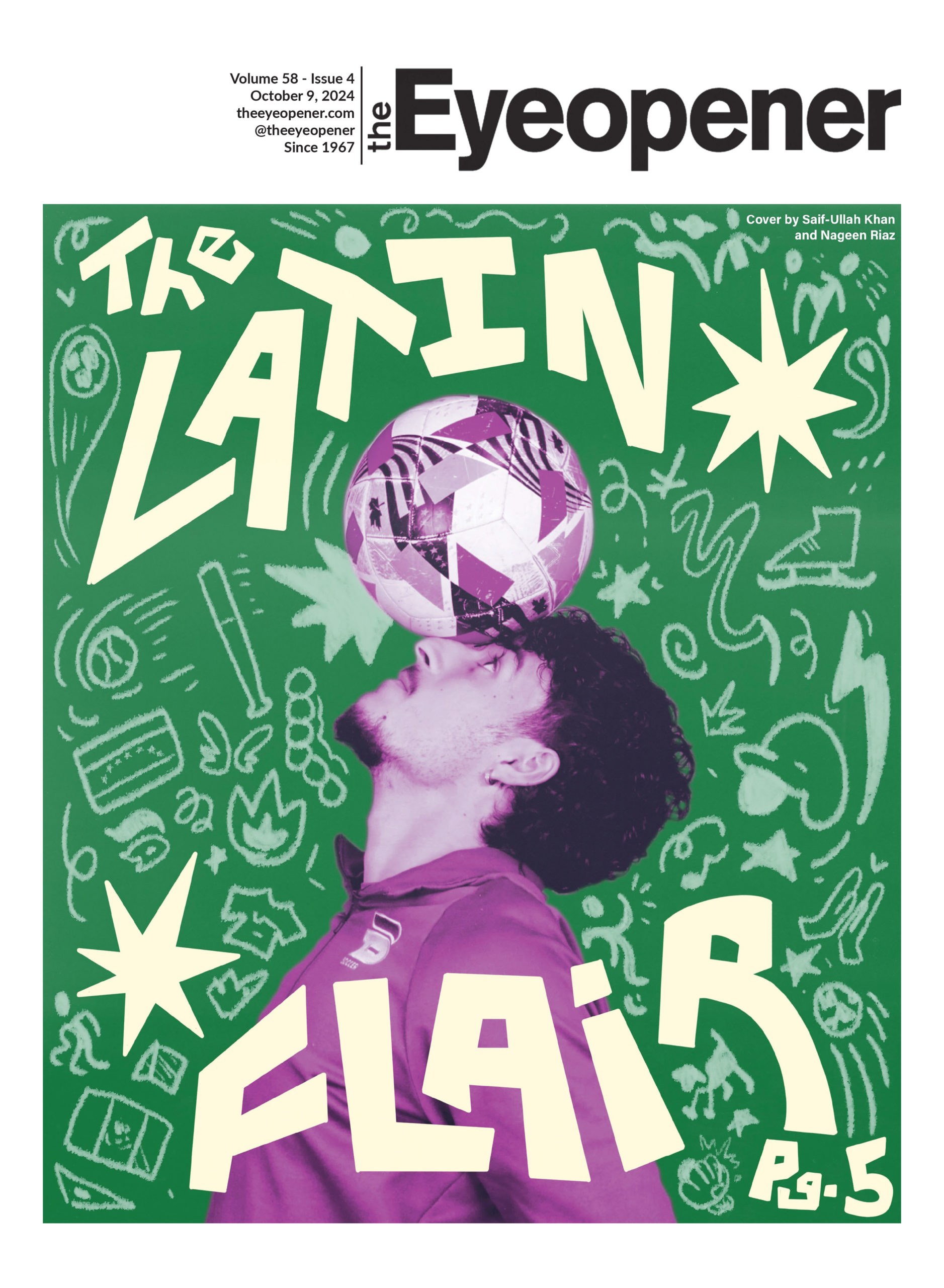By Heidi Lee
The Ryerson Students’ Union’s (RSU) decision to terminate all staff members at the Centre for Safer Sex and Sexual Violence Support (C3SVS) is harmful to survivors of sexual and gender-based violence, a former staff member at C3SVS told The Eyeopener.
“What the RSU has done to the staff, volunteers and survivors are not survivor-centred—they have not taken into consideration the needs of survivors at Ryerson,” said the former staff member who asked for anonymity due to safety concerns.
The former staff said they are upset because the RSU made the decision without consulting the Board of Directors (BoD) or survivors at Ryerson, who “depend on these services.”
In an email statement to The Eye, RSU president Ali Yousaf confirmed that the full-time coordinator at C3SVS was terminated on Nov. 6, followed by two part-time coordinators on Nov. 11 due to “poor management” at the centre.
“We reviewed the engagement on the Sexual Assault Survivor Support Line (SASSL) and the projected programming list for C3SVS and we were disappointed to see that the center was not fulfilling its mandate to serve the membership,” the email read.
Yousaf also stated that “the SASSL phone line has barely received any calls in the past few months.”
In an email thread and a screenshot obtained by The Eye, the reason for termination is explained as a result of restructuring due to a “lack of work and student users.”
The former staff member said the center had been preparing a number of initiatives, events and training for the community prior to their termination. These included a community general meeting on Nov. 9; a student-led task force titled RU Supporting Survivors; and collaboration with other student groups to create the 16 Days of Activism campaign for the International Day of Elimination of Violence Against Women. The centre was also looking into the possibility of adding a text-to-chat line for SASSL.
“We were left with so many questions,” said the former staff member. “There was unfortunately no way for us to continue working on these crucial projects.”
“Our centre recognizes that not all survivors have safe access to contact services like SASSL”
The former staff said they don’t believe the reasons provided by Yousaf to justify closing down C3SVS and SASSL because survivors are impacted by the pandemic.
“Our centre recognizes that not all survivors have safe access to contact services like SASSL. We were trying to work with the community to address these [issues] and adapt our services to [survivor’s] needs,” they added.
Farrah Khan, manager the office of sexual violence support and education at Ryerson, said sexual violence and gender-based violence will not lessen as students return home to self-isolate because home is not always a safe place for everyone.
“There are so many things we don’t know, such as long-term impacts of the pandemic on survivors of sexual violence, or whether people are choosing not to access services because they are in [environments] where it is not safe to reach out,” said Khan.
According to a Statistics Canada survey conducted in March, one in 10 women are very or extremely concerned about the possibility of violence in the home. Another recent Statistics Canada survey from July suggests 31 per cent of victim support services reported an increased number in the victims they served. 50 per cent responded with no change in numbers and 19 per cent saw a decrease.
Khan added that widespread job loss has created financial barriers preventing survivors from escaping abuse.
“This, too, is gendered—out of the 1 million jobs lost in Canada during the month of March, 61 per cent belonged to women [and] a 53 per cent of LGBTQ+ households have been affected by layoffs and reduced hours as a result of the pandemic,” said Khan.
Since the termination of all C3SVS staff is a management decision of the RSU, Khan said the university respects its independence and cannot compel the RSU to change its action.
Survivor-centred peer support
Yousaf said the C3SVS would remain open, but will undergo some changes and restructuring, adding that “the work is already in place.” It is unclear who is currently running the centre.
The former staff member said the so-called restructuring doesn’t represent the needs of survivors during these “unprecedented times”of the pandemic.
A volunteer for the C3SVS said she thinks the termination shows the “unprofessionalism and mismanagement of the RSU” and “strictly goes against the mission of the C3SVS” to support survivors.
“If your mission is to support survivors, that sense of community is important— knowing that you have a [consistent] place [to go] where you can be believed and will not be judged is completely important,” said the volunteer, who also asked for anonymity as she still hopes to support survivors at the C3SVS in the future.
“To dismantle it entirely without a plan of restructuring implemented right away or before the entire dismantlement of the centre is irresponsible and not survivor-centred because you are revoking that support,” she said.
She said if the RSU claimed there is poor management, it should possibly propose a restructuring plan or update training before laying off trained staff members.
She added that she didn’t receive notice of her termination through the RSU—she learned about it through former staff members who were already terminated at the time.
When the volunteer tried to reach out to a distress centre helpline multiple times during the pandemic, she said she waited for more than half an hour until she could get the support she needed.
“I am not being ignored, but it shows that [survivor support services] don’t have space for me yet,” she said. “There are so many people who require these services, having services at school can help alleviate them.”
“Peer support can provide survivors with validation and affirmation that the violence they experienced was not their fault, help to reduce isolation, and help to combat the messaging of internalized rape myths”
Annasofie Jakobsen, a second-year performance production student at Ryerson, said she was shocked when she heard about the layoffs. She said she didn’t think the RSU would lay off all the staff at C3SVS during a pandemic.
“I was really surprised because I thought the RSU put their students first,” said Jakobsen. “To me, letting go off every single staff at C3SVS did not align with their promise that they would put students’ best interest first.”
“[C3SVS provides] an important service that a lot of students use, or at least it’s nice to know that it’s always there.”
Jakobsen said her experience with C3SVS was amazing. During her phone call with one of the workers, she said she had felt supported, understood and listened to, adding she’d recommended its services to her friends who are also struggling.
“The women who emailed me back and forth assured me that [the volunteers] will listen, support and uplift [me] and they absolutely upheld their promise,” said Jakobsen. “They were just really great people to talk to.”
According to a statement released by the Continuing Education Students Association at Ryerson (CESAR), the collaboration between CESAR and C3SVS was “interrupted by the RSU leadership.”
“We are also concerned that those who may be attempting to take on the work done by the centre’s SASSL may not be adequately trained,” the union’s statement read. “The laid-off CS3VS staff are trained and experienced with responding to survivors and providing support that is anti-oppressive and trauma-informed.”
The volunteer said she believes events and peer support provided by SASSL can foster a sense of community and safety among survivors that “can help healing in a unique way,” and is not limited to sexual assault survivors.
“When you call the helpline, when you come in, there is no judgement, no questioning and no proof required for what you are feeling or what you experienced,” she said. “We believe you and want to help you. That is extremely underestimated and is necessary.”
Khan added a strong peer support program creates an opportunity for emotional and practical support between two people who share a common experience such as sexual violence.
“Usually, volunteers or workers have lived experience and are trained to be active listeners,” she said. “Peer support can provide survivors with validation and affirmation that the violence they experienced was not their fault, help to reduce isolation, and help to combat the messaging of internalized rape myths.”
Yousaf did not respond to The Eye’s request for a follow-up interview in time for publication.
In addition, previous layoffs are expected to be addressed at the RSU’s November Board of Director meeting, which will take place on Tuesday, Nov. 23. Students can register here.
Supports are available to survivors at Ryerson including Consent Comes First, The Office of Sexual Violence Support and Education.
Ryerson community members can also access resources including peer support programs such as rape crisis centres, LGBTQ Youth Line, violence against women shelters and Trans Lifeline.
With files from Alexandra Holyk










Leave a Reply